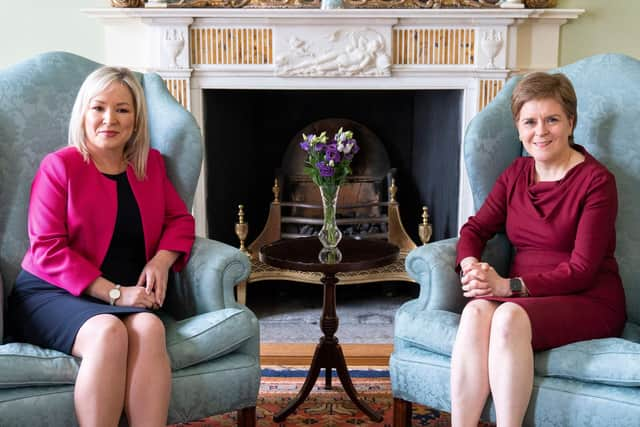Scottish politics is not capable of dealing with the complexities of Northern Ireland - Conor Matchett
This article contains affiliate links. We may earn a small commission on items purchased through this article, but that does not affect our editorial judgement.
Northern Irish politics is steeped in nuance and complexity, to a degree the vast majority of people simply do not comprehend.
The history of Northern Ireland, the devastating impact of the Troubles post-war, and the links to the history of the United Kingdom are infinitely complex.
Scottish politics should stay well clear.
Advertisement
Hide AdAdvertisement
Hide AdNot because there is not room for nuanced, complex, well-informed responses to the current political crisis in Northern Ireland. That would be a much welcomed approach to the current stand-off between the DUP, the UK Government and Sinn Fein.
No, it's because Scottish politics in recent years has demonstrated it cannot always be trusted to treat complex issues with the nuance that is often required.
Whether it be the question of independence, or the debate around transgender rights and gender recognition, or even bog-standard issues such as education and transport, constitutional bickering and political game-playing is often more important than the issue at hand.


Take the current ‘debate’ around local election coalitions in which a party, Labour, claimed it wouldn’t do deals with others pre-election.
Post-election it is voting to put Conservatives into key council positions such as Provosts and committee chairmanships, all while claiming these aren’t deals.
The SNP, meanwhile, conveniently forget their own ‘backroom stitch-ups’ with the Conservatives in 2007 during the beginning of SNP rule in Scotland, whenever they bemoan Labour getting into bed with the Conservatives.
It does not promote confidence our politics could look at Northern Ireland and treat its complexities with adequate sensitivity.


Instead, there is the potential for both sides of the constitutional coin to use the collapse of power-sharing in Northern Ireland and Sinn Fein’s victory as a rhetorical device to suit whatever constitutional goal they aim for with talks of border polls, mandates or direct rule, rather than searching for a solution to bring back government to Stormont as soon as possible.
Advertisement
Hide AdAdvertisement
Hide AdNorthern Irish politics simply does not deserve and does not need more broad-brush interventions from this side of the Irish Sea.
Shame on Scotland’s politics if that is where we end up.
Want to hear more from The Scotsman's politics team? Check out the latest episode of our political podcast, The Steamie.
It's available wherever you get your podcasts, including Apple Podcasts and Spotify.
Comments
Want to join the conversation? Please or to comment on this article.

